9 liver-friendly food swaps to make now
By Nutrition Consultant Jessica Robinson
The liver is our second biggest organ, and has many roles in the body including manufacturing many essential proteins, eliminating toxins, regulating fat and protein metabolism, storing important vitamins and minerals, filtering our blood to get rid of any unhealthy cells, regulating hormones and protecting our immune system. Because the liver is central to so many vital processes, it is essential to look after it the best we can. Although our liver is the only organ capable of regeneration, this does not mean we can afford to be careless with it. A healthy diet is key, and thankfully there are many simple, basic changes we can adopt today that our liver will be thankful for in the future. For optimal health we need to look after our livers.
Here are 9 simple food swaps to make today:
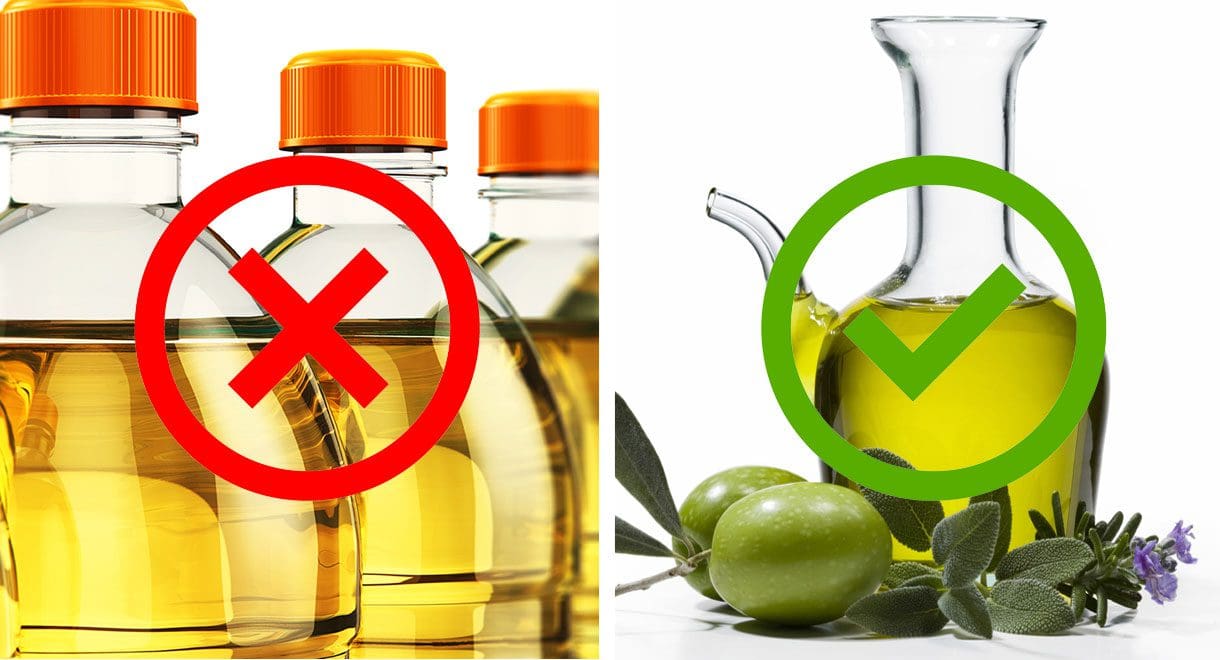
1. Canola/vegetable oil FOR avocado oil/extra virgin olive oil/nut & seed oils
Avocado oil, olive oil and nut and seed oils are unrefined oils that are high in omega 3 fats, whereas canola and vegetable oils are high in polyunsaturated fats and can promote inflammation throughout the body. Regularly eating unhealthy fats can cause liver damage and increase the chances of getting a fatty liver. On the other hand, omega 3 fatty acids help to repair damaged cell membranes in the liver and reduce cholesterol and triglyceride levels. So next time you’re at the shops rather than opting for the cheaper, poor-quality canola and vegetable oils, pay the extra money to get a good quality oil that has numerous health benefits.
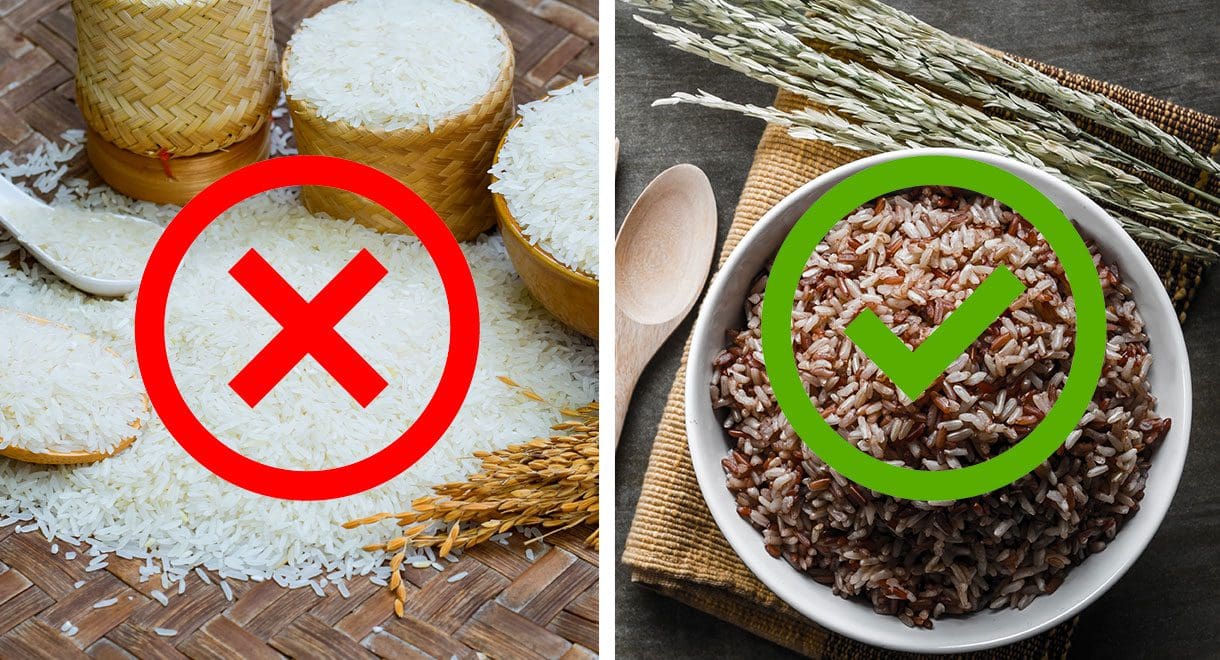
2. White rice FOR brown rice/quinoa
White rice is a refined carbohydrate that is stripped of its nutrients until it is simply carbohydrates that are converted into sugar immediately after consumption. Brown rice on the other hand is full of vitamins, minerals, fibre and protein. Quinoa is a gluten-free carbohydrate that is a complete protein source and full of insoluble fibre. Due to their high fibre and protein intake quinoa and brown rice have a low GI, provide the liver with the amino acids to function optimally and help to stabilise blood sugar levels. This is one easy swap that is a worthwhile investment for your health.
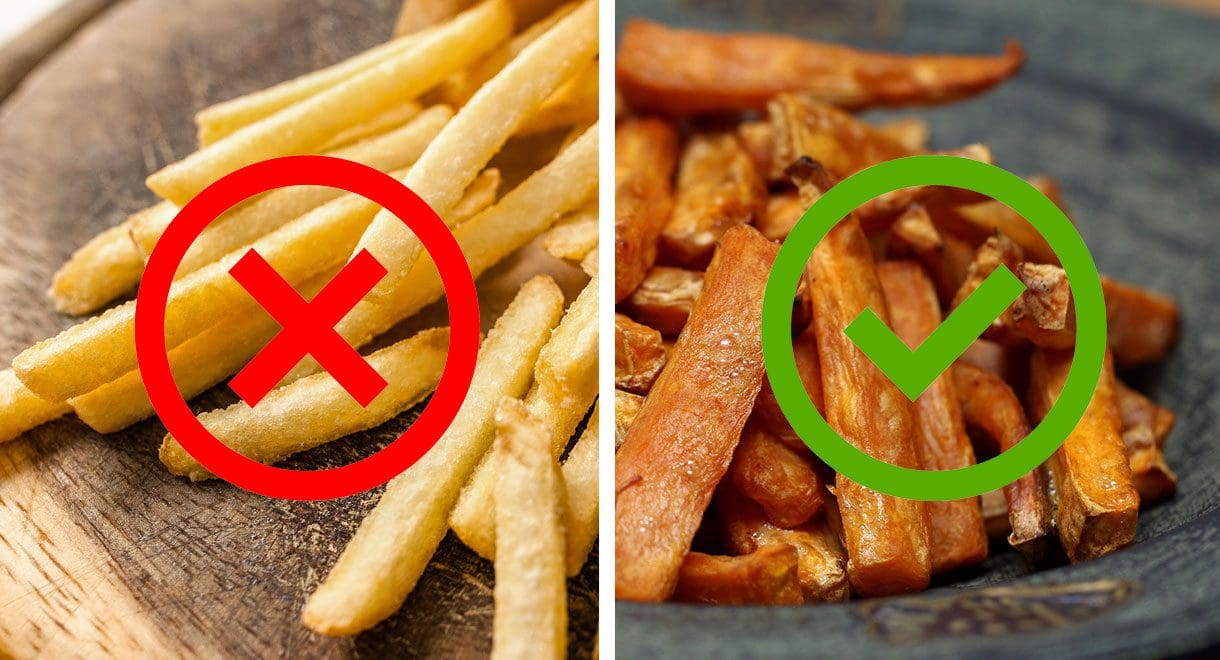
3. White potato FOR sweet potato
While both potatoes have nutritional value, sweet potatoes are much higher in vitamin A, contain more vitamin C, are higher in fibre and are lower in carbohydrate. Fibre and vitamin C help to keep your liver functioning at its best and beta-carotene (which converts to vitamin A in the body) is a natural anti-inflammatory that your body loves. So next time you’re eating out consider ordering a side of sweet potato fries instead of regular fries. Or when making dinner at home opt for some sweet potato mash instead of regular mashed potato.
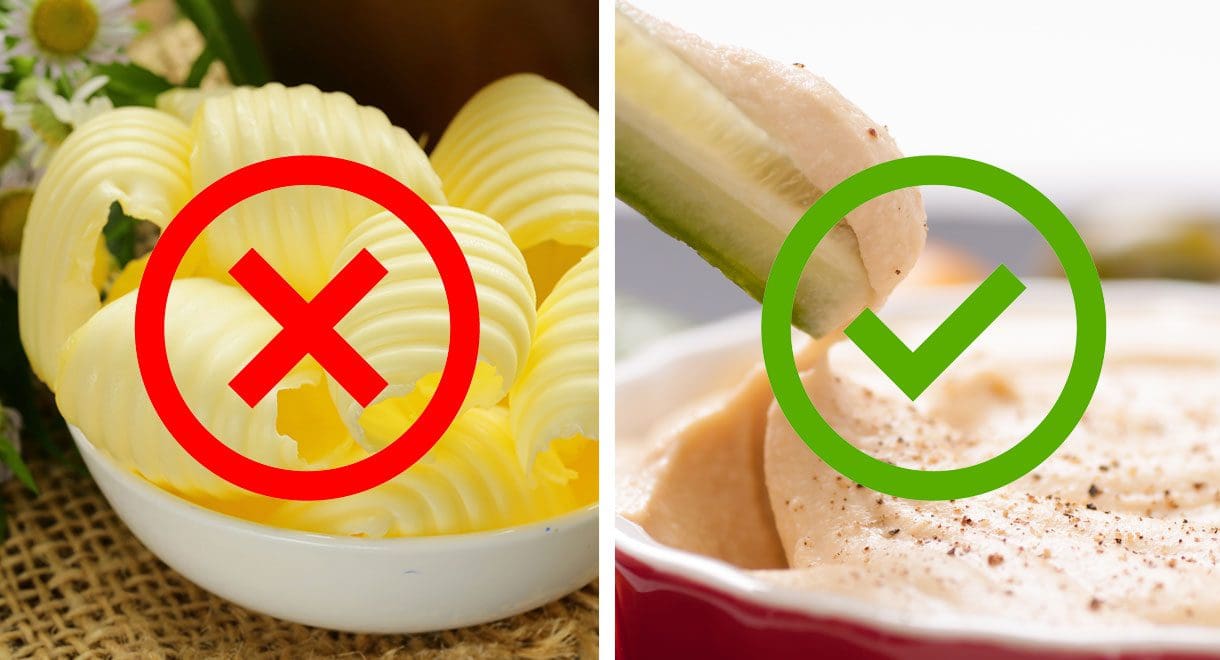
4. Butter/margarine/jams FOR avocado/tahini/hummus
Avocado, hummus and tahini are great sources of liver-friendly essential fatty acids. Hummus and tahini are also good sources of protein and calcium. On the other hand, jams are loaded with sugar, margarine contains trans fatty acids which are damaged fats, and although butter is better tolerated than margarine it is still high in fat and can easily become rancid. Sugar promotes inflammation and excess amounts contribute to fatty liver, while damaged fats can clog the liver and cause serious harm. Avocado, tahini and hummus are delicious healthy spread options and your liver will be grateful for this simple swap.
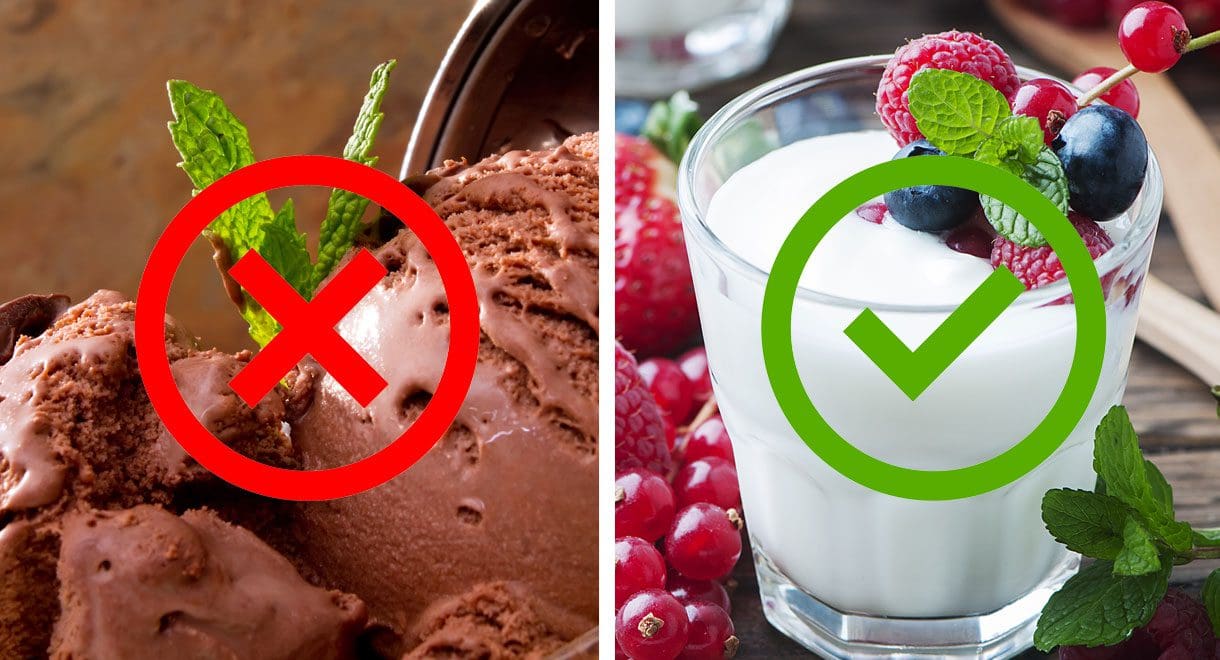
5. Ice-cream/flavoured yoghurt FOR plain, unflavoured, full-fat and Greek yoghurt
Though difficult to hear, it should be no surprise that ice-cream is a double whammy by being high in unhealthy fat and sugar. Flavoured yoghurt’s sweetness is due to the ample amounts of sugar that are added. Sugar activates fat production in the liver and can cause liver inflammation which can lead to fatty liver. Yoghurts that are plain, with no added sugar, full-fat or Greek are a good source of probiotics and are very high in protein with less carbs and sugar than flavoured yoghurt. The probiotics in these yoghurts can improve liver enzymes and support the liver in ridding the body of toxins.
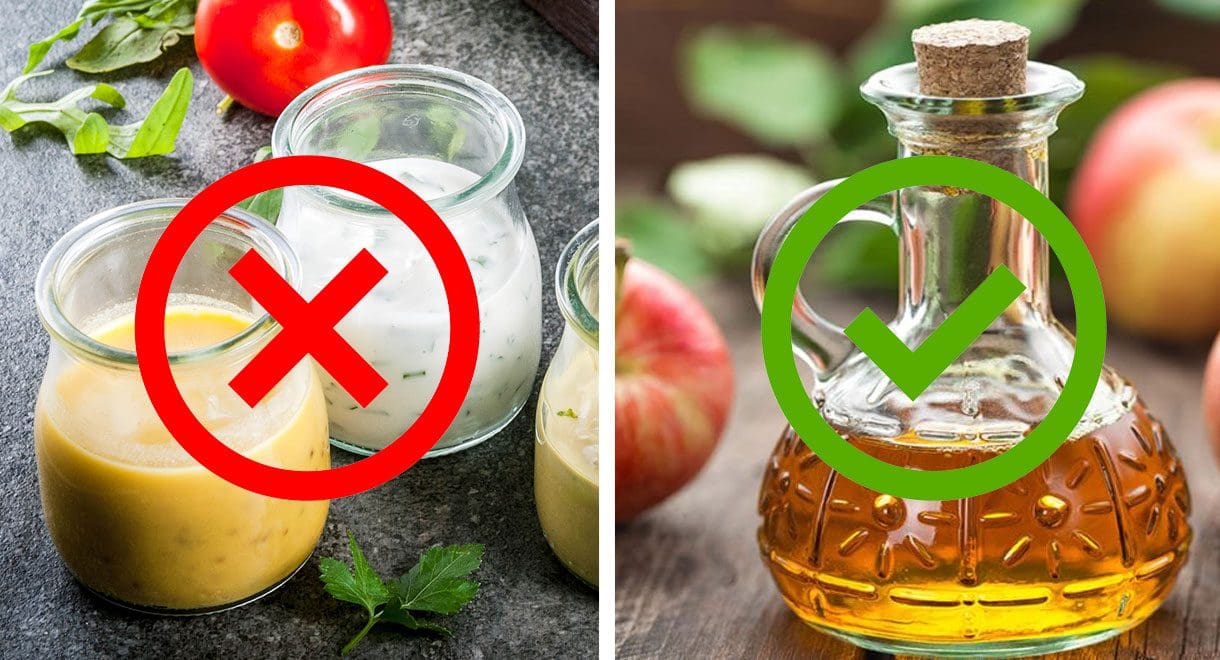
6. Creamy salad dressing FOR olive oil/fresh lemon/apple cider vinegar
Creamy salad dressing is often loaded with sugar and added preservatives. On the other hand, lemon is very cleansing for the liver and can naturally lower blood sugar and insulin levels. Apple cider vinegar lowers insulin levels and aids digestion, easing the workload of your liver. Extra virgin olive oil is a good source of omega 3 fatty acids and has many protective benefits for the liver. So, next time you make a salad opt for the more natural choices – olive oil, fresh lemon and apple cider vinegar really are quality liver-friendly salad dressings.
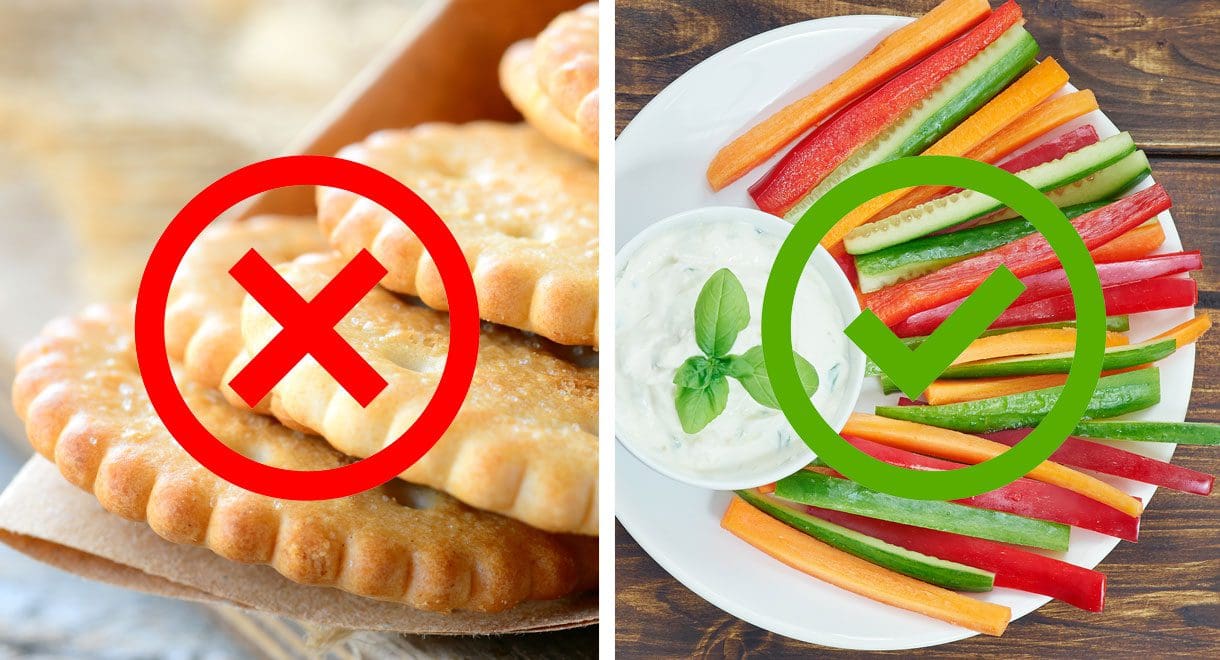
7. Crackers FOR Vegetable sticks
Crackers are a source of refined carbohydrates which are converted into sugar in the body. A diet high in refined carbohydrates is one of the leading causes of NAFLD (Non-Alcoholic Fatty Liver Disease). Carrot, celery and cucumber sticks are much more liver-friendly, and as they are consumed raw they are extremely high in fibre and helpful for alleviating constipation and boosting the metabolism. Many people are unaware that not consuming enough raw foods can lead to liver disease. Cucumbers also contain a high amount of water which helps to hydrate and cleanse the liver. Vegetable sticks go very well with home-made guacamole and hummus.
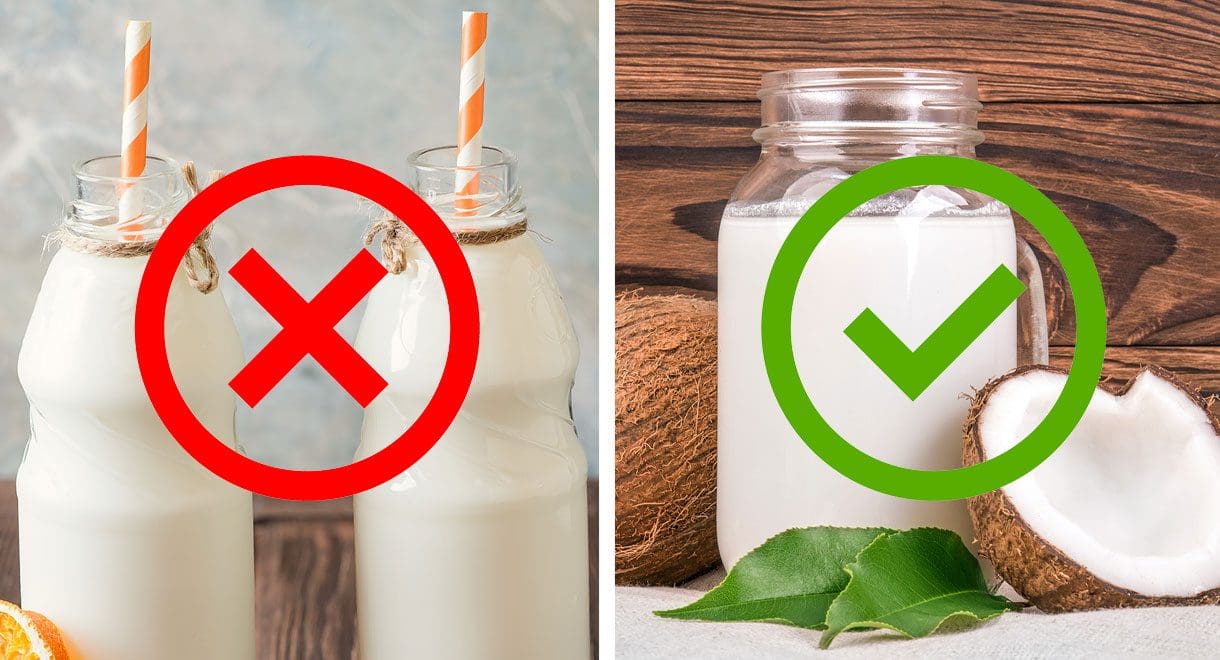
8. Cow’s milk FOR almond/coconut milk
Although there are nutritional benefits to drinking cow’s milk, a large number of individuals are intolerant or sensitive to dairy products. Using unsweetened almond or coconut milk is an excellent way to minimise dairy intake, and as they are both high in fibre they aid digestion and make you feel fuller for longer, decreasing the workload of your liver. It may sound like a difficult swap to make, but soon you will get used to the flavour and may even notice a reduction in digestive symptoms.
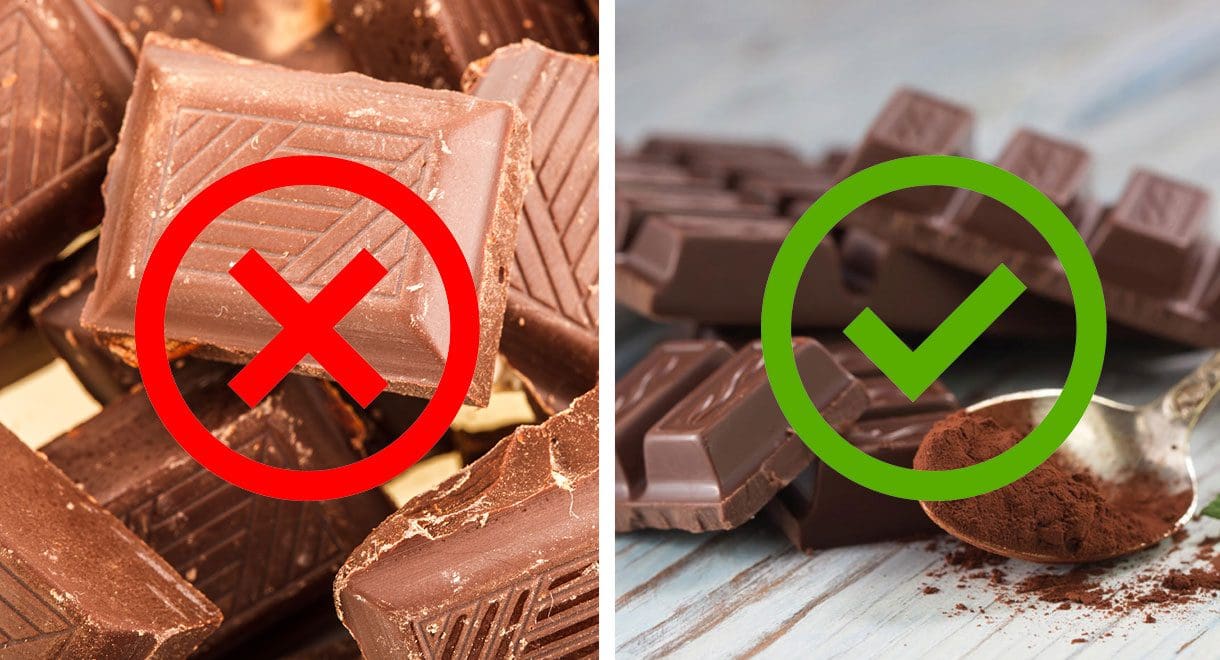
9. Milk chocolate FOR dark chocolate
Compared to milk chocolate, dark chocolate has fewer carbs and half the amount of sugar. Milk chocolate does not have the benefits of dark chocolate as milk can inhibit the absorption of antioxidants in chocolate. When we say dark chocolate we’re especially referring to the ones that contain 70% or more cacao. Cacao contains the highest amount of antioxidants compared to any food in the world – so having one or two pieces to satisfy sweet cravings is ideal for optimal health and longevity. Antioxidants are able to hunt down free radicals and neutralise them, making dark chocolate an excellent liver-friendly treat.
For more information on liver-friendly foods and healthy eating principles you should check out Dr Cabot’s books ‘Fatty Liver: You Can Reverse It’ and ‘I Can’t Lose Weight and I Don’t Know Why’.


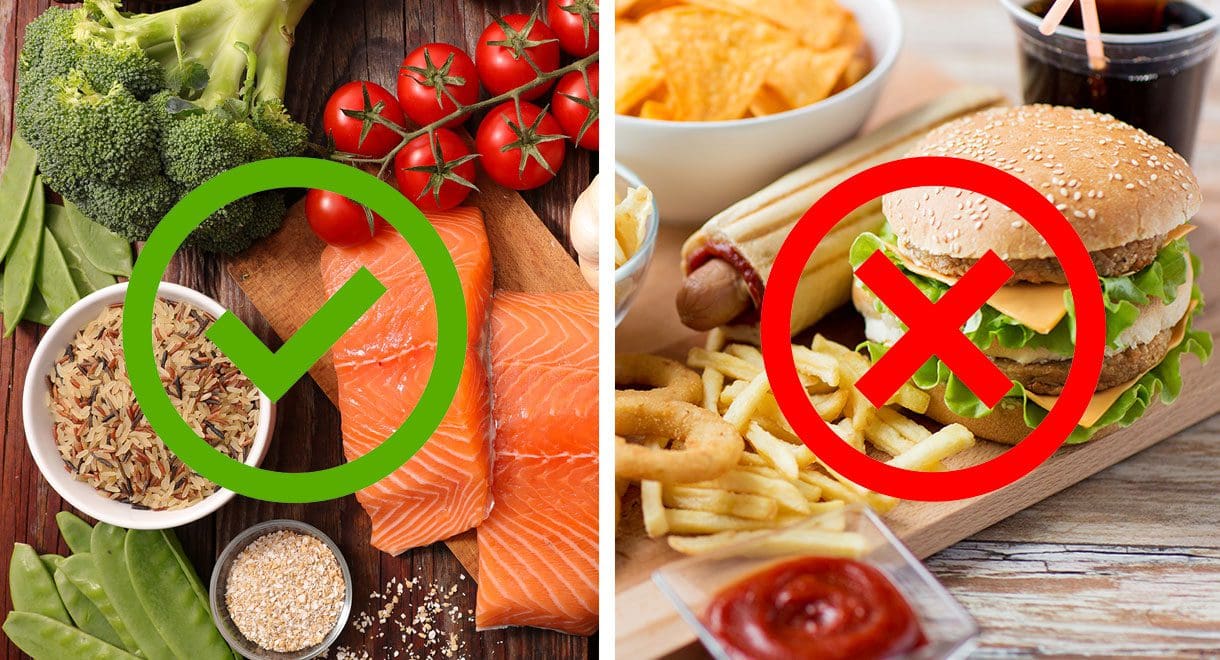

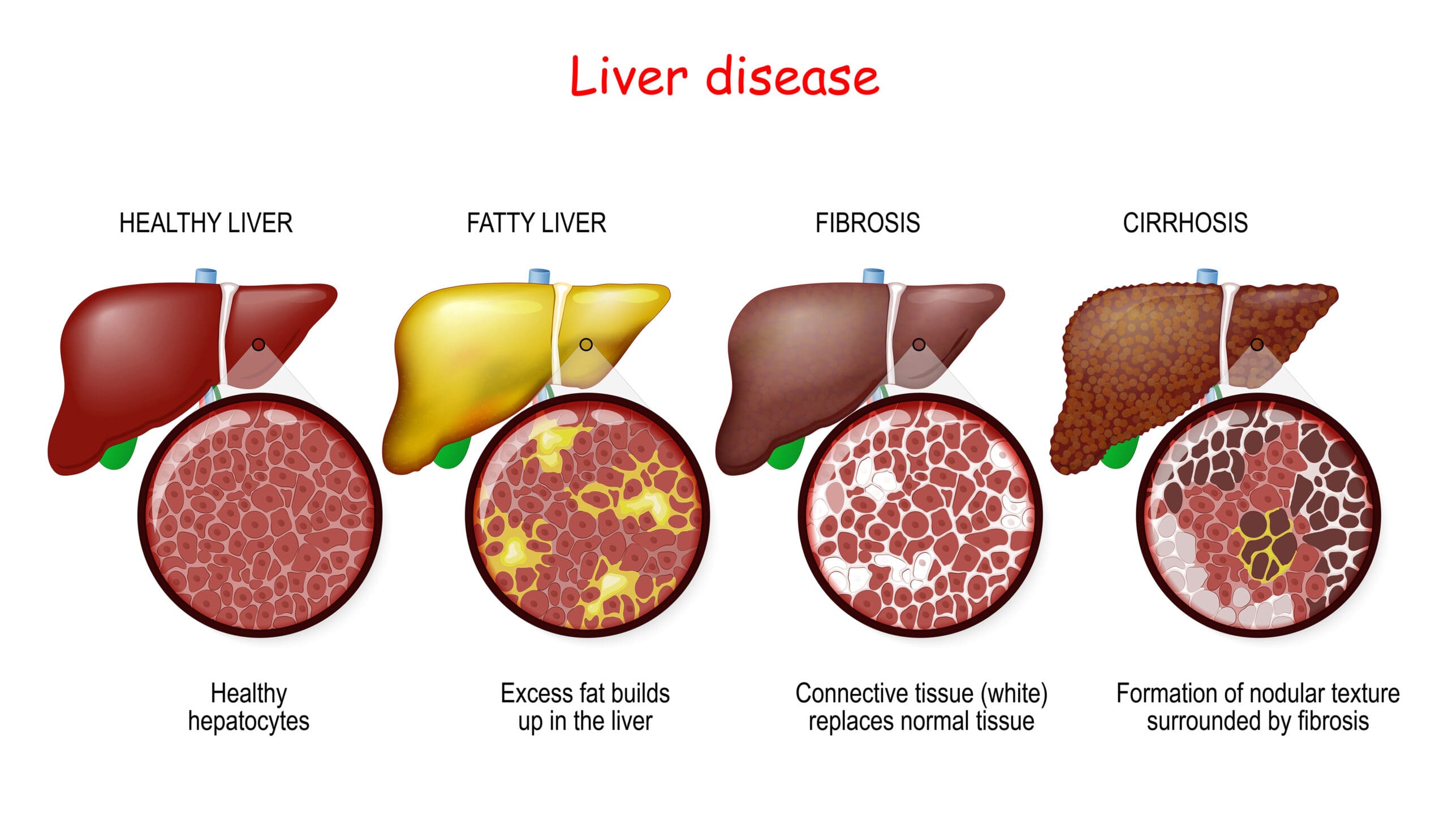

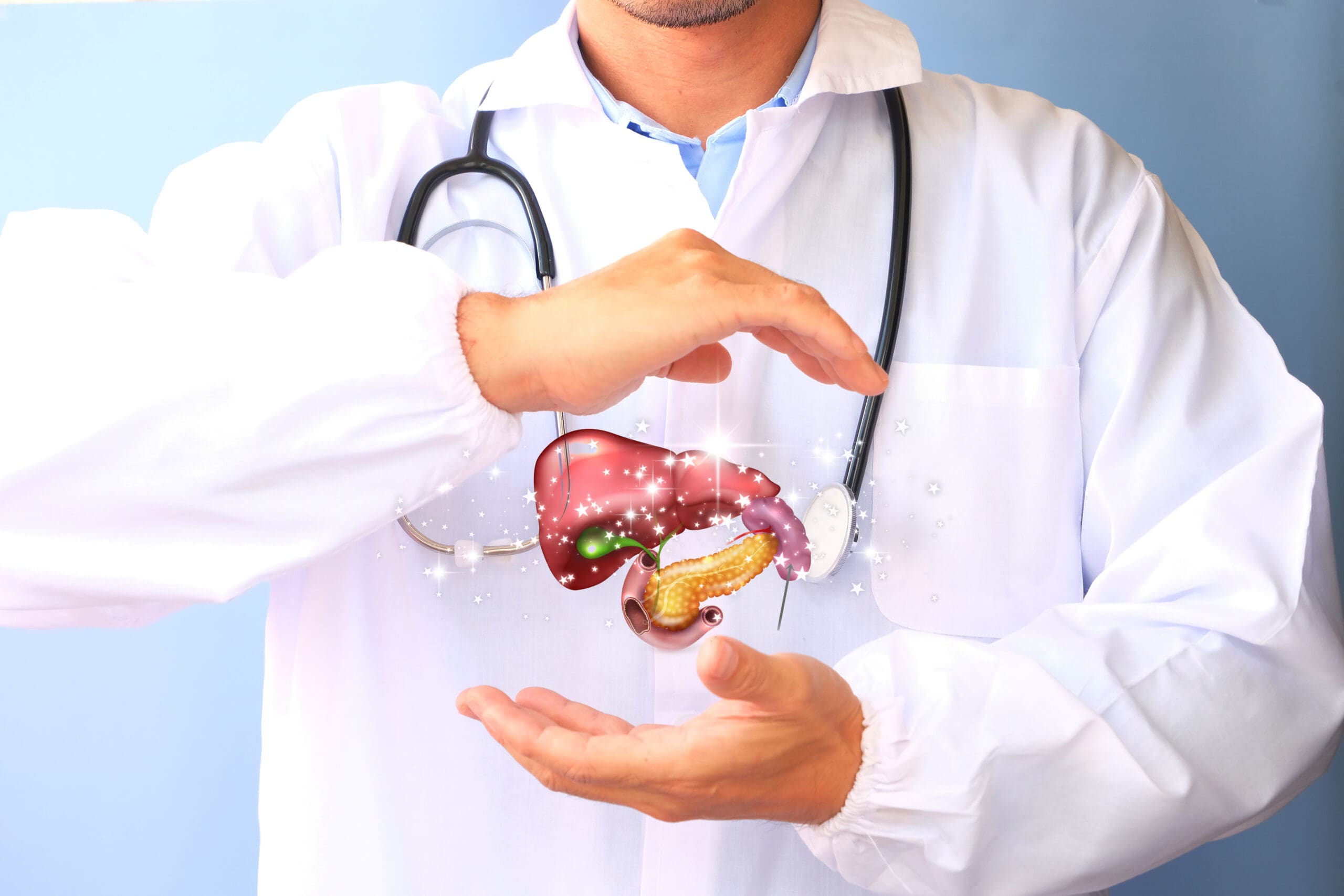

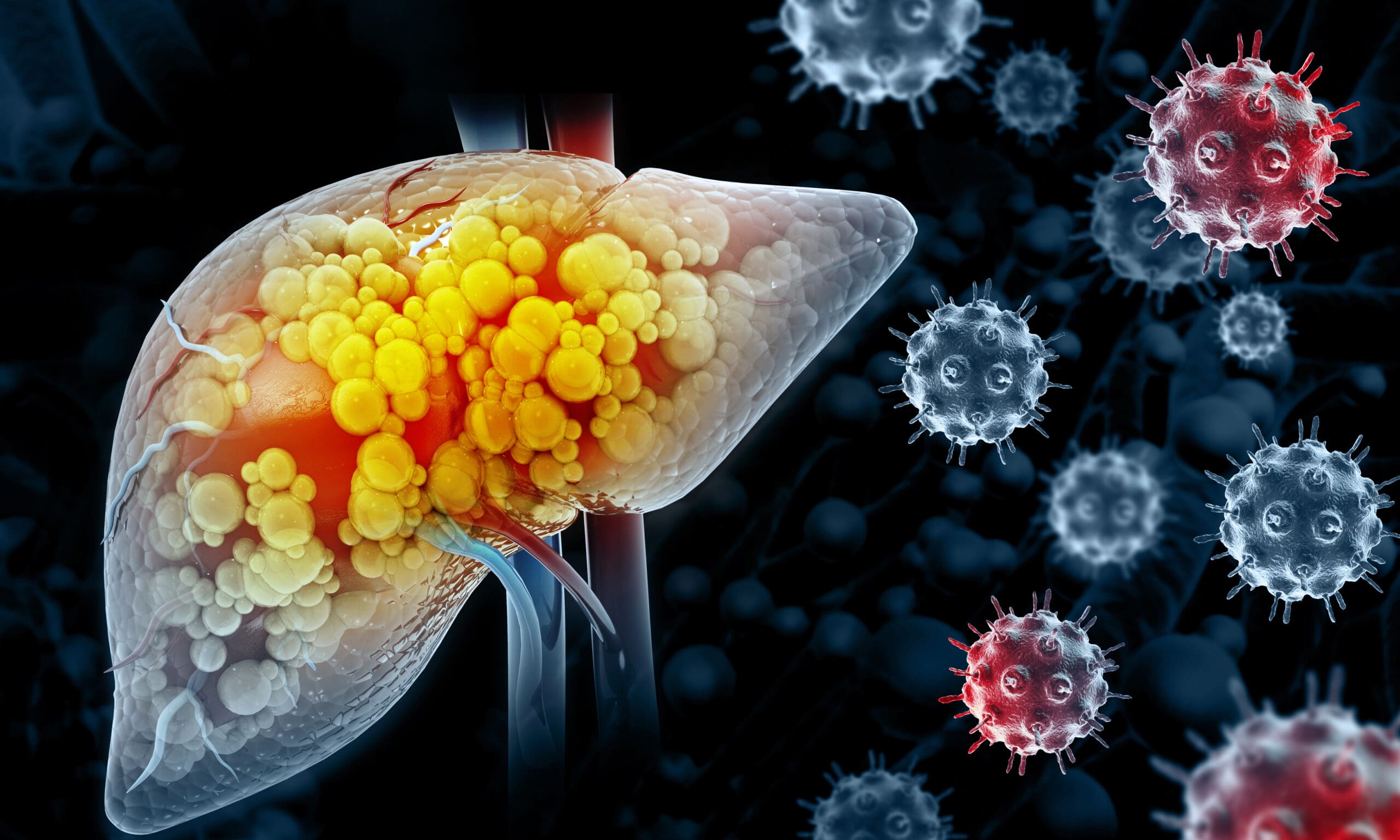
Leave A Comment